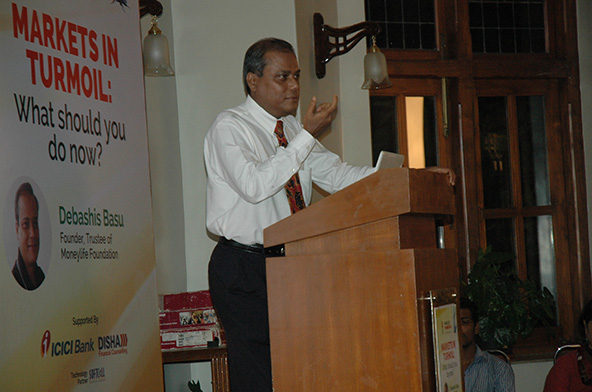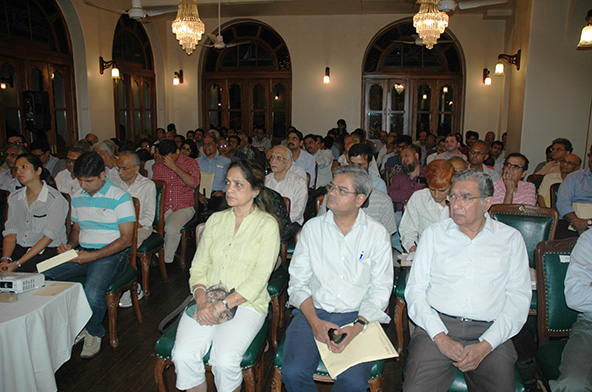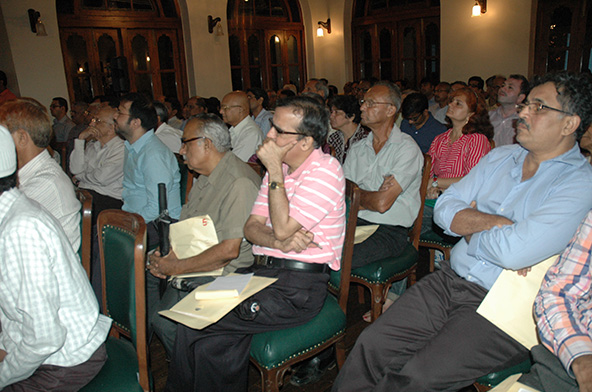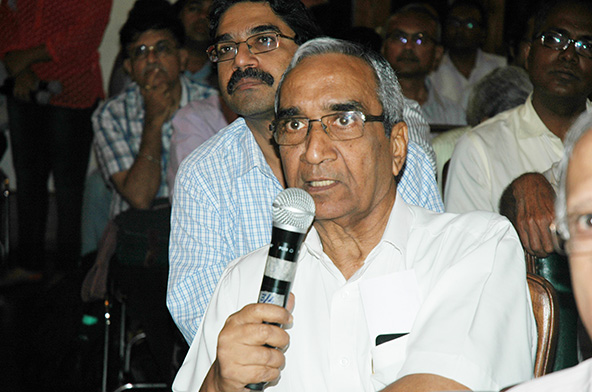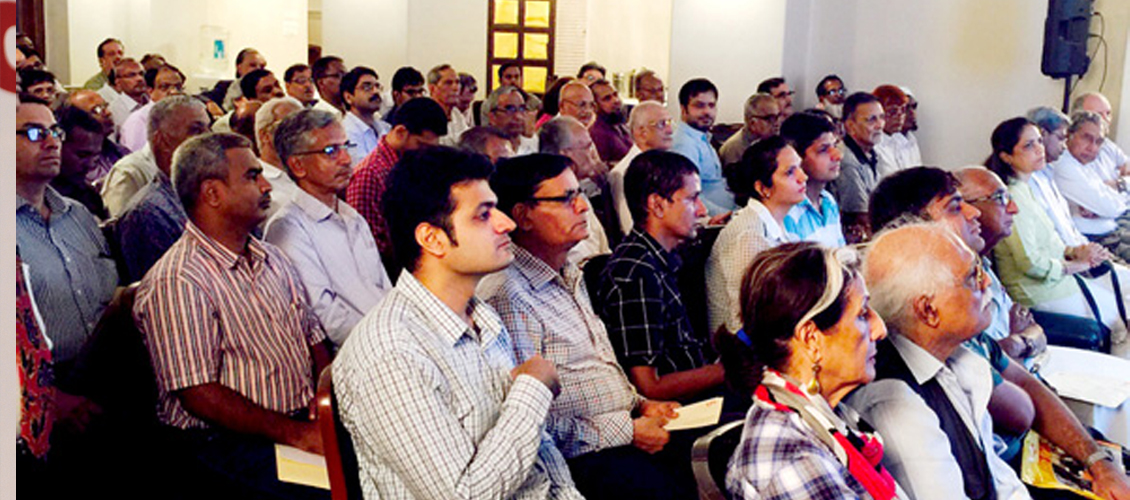
“Stay the course. This is not a time to panic. The conditions that create a major market crash are not evident at this point in time”, said Debashis Basu, Trustee of Moneylife Foundation. He was addressing Moneylife Foundation members a session on ‘Markets in Turmoil. What Should You Do Now’ in Mumbai.
The markets have been struggling. Global factors along with poor earnings growth and high market valuation led to a steep fall in stocks prices leaving investors in a fix. Is it a good time to buy or should they exit now a cut their losses?
Mr Basu, also Editor & Publisher of Moneylife, said, “Investors tend to forget that 15 to 20% correction in stock prices can happen at any time whether or not we are in a bull market. It does not necessarily presage a market crash that is part of a major bear market. In fact, over the past 20 years, there have been only two major bear markets – one in 2000-01 and another in 2008.”
Moneylife Foundation, with over 36,600 members is a leading NGO involved in imparting financial literacy and advocacy on behalf of financial consumers. This was the 253rd session organised by the Foundation, which is affiliated to Moneylife magazine and the website.
In just about six months, the Nifty declined over 1,400 points or 16% to 7,559 as on 7 September 2015 from its peak in March 2015. “Those who had invested in beginning 2014, will be looking at a significant decline in their portfolio value,” explained Mr Basu.
He went on to describe which stocks and sectors did well in the pre-election period and recent crash. “Sectors which declined the most were the ones which rallied significantly, post the Modi-government came in to power, on expectations of reforms,” he said. Sadly, the Modi euphoria seems to have died out.
He pointed out that after Narendra’s Modi became the Prime Minister in May 2014, the markets have been on a high. The Sensex shot up from over 22,000 in April-end to over 30,000 in March 2015. However, the market mood seems to have soured now. Major indices are now down 16% from their peak while many sectors such as realty, infrastructure, metals are down 30% or more in the past six months.
This has naturally given rise to anxiety among investors especially since the global markets are also in turmoil. The Chinese economy is expected to slow down significantly and the US markets have corrected sharply fearful of the interest rate increase by the Federal Reserve of the US.
However, this is not the first time there has been a huge sell-off in the market. There have been several instances in the past when the market declined significantly. Most of these occasions have been forgotten as the market rallied. Mr Basu brought these instances back to memory.
“Such severe bear markets have certain characteristics, such as, extremely high valuations, a flurry of fund raising activity, sharp increase in of little-known small stocks, new themes and overwhelming retail participation. These characteristics are missing in the current decline,” he added.
This does not mean, said Mr Basu, that one can buy stocks fearlessly and the market will be headed higher. “We have been arguing that the market has been overvalued from late September-early October and one has to be highly careful about choosing the right stocks.”
This is not so difficult, suggested Mr Basu, if one tunes out the noise and sticks simply to buying stocks that make high returns on capital.


